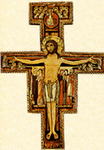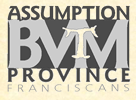Seems like old times, doesn't it? Democrats and Republicans wrangling (again!) about the economy. So much for "change;" at least so far. 
Sen. Nancy Pelosi (D-CA) and Rep. Harry Reid (D-NV) at a press conference advocating the Decomcrats' nearly $800,000,000,000.00 (that's approaching $1 trillion!) Stimulus Package.
Democrats are touting this as necessary, although imperfect, to get the economy going again. Republicans tend to disparage it as inconsequential and a huge waste of government funds.

One very practical question, of course, is where is the money coming from? Our government is already in deep debt to China. And the rest of this economic business becomes foggier and foggier to figure out. We rely on "experts" of economy, who don't necessarily agree with one another. Depends to which Party one subscribes and promotes, I suppose.
Nevertheless, any Stimulus Package, any antidote to a toxic economy that is malfunctioning must always take into consideration the effects on human lives. In a very real way, at least for people of an ethical conscience, be they believers or others, the economy is meant to serve humanity, not humanity at the service of the economy.
Regardless of one's economic theory(ies) or school(s) of thought, it must never be forgotten nor forsaken that so many human beings' lives have been adversely affected -- loss of employment, loss of livelihood, loss of homes, loss of credit, loss of savings, loss of retirement, loss of businesses -- all these add up to people, especially those who are older and therefore more vulnerable, suffering through the ignominy and grief of loss.
As Franciscan friars, we stand in solidarity with all those who are struggling and who are suffering the weight of grief. Our charism, a gift of the Holy Spirit to the Church, and to the world, mediated through the person of St. Francis of Assisi, is to accompany those who are being cast aside through this economic downturn of the last half year or so.
Beginning with property speculations and the bubble that burst and all its subsidiary effects, we have seen the reality of human greed. It's seamy and it's ugly. Greed has no concern for the other, for human life. It respects no one; it is completely self-centered.
Generosity, on the other hand, is life-giving, as its root suggests. St. Francis, inspired by the Gospel of Jesus Christ, wanted to be generative and so became generous. He wanted to live completely for the Lord Jesus.
Greed seduces us into the lull of self satisfaction. Generosity leads us beyond ourselves, away from the pit of self preoccupation into communion. This is what the late Pope John Paul II wrote and again what the current Holy Father, Pope Benedict XVI teaches.
Bro. Andy Brophy, OFM at St. Francis of Assisi Parish, Greenwood, MS with parishioners.
Simply put, it's Gospel! And that is life. Perhaps coming through the murkiness of this current economic situation we can learn to be generous and to advocate those values for the economy that are virtuous; those values which respect human life and the goodness of being human. remembering that the economy serves humanity, not the other way around.















